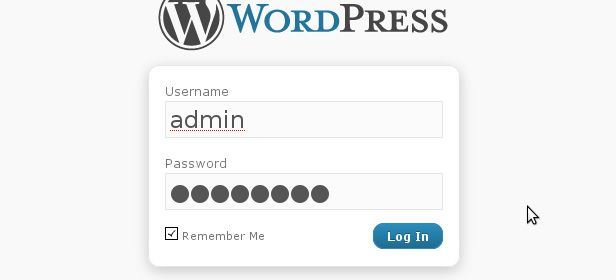WordPress has become in its own right the best home for our blog, but over time it has become a versatile content management system that allows you to create any type of web page thanks to its great amount of customization options. If you still aren’t using it, and you want the world to know about your project, here are a few tips on how to start working with WordPress.

According to Matt Wulemberg, the company’s founder, WordPress is one of the most-used and desired tools on the web today – 20% of all users across the globe, which translates to 46 million people, are using it.
This means that 1 in every 5 websites in all the Internet is created on WordPress. And they aren’t just blogs, as only 6% of them use it for that purpose. Almost 70% of users turn to WordPress as a content management system for their website, and 20% use it as a hybrid between the two.

The advantages that the platform offers compared to its competitors, or other more complex CMS companies, are more than obvious. So, if you want to start a blog from scratch, there couldn’t be a better option than this. There are two options to do so: Host it on WordPress’s servers, or host it on its own. Each of these options has its pros and cons, but here are some of the most important of them:
A WordPress-hosted blog
“I want to start a blog, but I don’t know how to do it, and technology isn’t my forte. I don’t understand all the tabs with their strange terminology, and all I want is to write, and not worry about maintaining my blog. I don’t want to earn money at all because I want to write for fun, and I don’t want to worry about giving it a commercial or professional feel.”
Here is the solution to your problem: Go to the official WordPress website and register a domain, such as (nameofblog).wordpress.com. Follow the registration guide, which will help you create your free account, and you can start publishing immediately.
Fill in all the required info (we repeat: this is completely free, unless you sign up for “premium” features), and select the name of your domain. Once you have registered, you can insert a brief description of yourself, and update your profile, which allows you to connect with your different social media accounts so that your readers can find you, if you choose.
Next, you’ll have to confirm your registration through an email that they will send to the email address listed on your account. Then, you will go to the dashboard of your brand-new website by typing the name of the site in the URL bar, followed by “/wp-admin.” So, it will look something like (nameofblog).wordpress.com/wp-admin. Once you open the dashboard, you’ll quickly realize that publishing or modifying new posts is so easy that you won’t have any problems when it comes to getting to work.

If you want to get a .com address without the “wordpress” in the middle, you will have to pay for it, just as you will if you want to customize the template to make it different from the options they give you to choose from. As it is, they offer a ton of free themes to choose from to use as a base. If you want to edit the CSS, you’ll also have to pay a small annual fee.
Self-hosted blog
“I would like to have a more custom blog where the people that read my stuff know that it is a professional blog because that is what I do. I want to customize the details of my blog, and I want to have a more personalized dashboard for doing so. I don’t mind paying for it – I prefer to, if it means a more refined result.”
This option has a lot of benefits. You will have complete freedom over the personalization of your blog if you know CSS. You can also include different kinds of advertising on the website, or make money from the site in other ways. This is something that you can’t do if you host it on WordPress domains.
You will have to find both the domain and the hosting on your own. There are tons of services on the web, such as 1&1, or Arsys. You can even host it locally on your home computer. The possibilities are endless, and this option doesn’t cost much more than the others.
Also, it isn’t a permanent decision. WordPress allows you to import and export all of your data, so you can easily preserve and move your posts to another service.
Hosting your blog on its own domain is a bit more complicated, so we’ll leave it for another blog post.













[…] proyecto de WordPress tiene 10 años de iniciado y según estadísticas ya “mueve” alrededor del 20% de todos los websites existentes. Sin embargo, no significa que sea lo único […]
Hi Dear, are you in fact visiting this website on a regular basis, if so then you will
absolutely get good knowledge.
Please let me know if you’re looking for a writer for your
site. You have some really good articles and I think I would be a
good asset. If you ever want to take some of the load off, I’d absolutely love to write some material for your blog
in exchange for a link back to mine. Please shoot me an e-mail if interested.
Regards!
Thank you for publishing this brilliant post.
I’m a long time reader however I’ve never left a comment.
I’ve bookmarked your blog and shared this on Twitter. Many thanks again for a quality article!